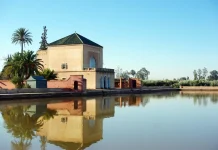Medical tourism is the practice of traveling to a different country to receive medical treatment. Depending on the character of treatment and destination of travel, costs savings might be substantial, even after factoring in air fare, hotel accommodation, insurance, dining and shopping. For instance, a heart valve operation which might cost over $200,000 within the United States, could cost under $10,000 in a rustic like India. It is for that reason, an ever increasing variety of patients within the West, where medical costs have sky-rocketed, are traveling to Asia to hunt medical treatment.
Singapore has grow to be one among the main destinations for international medical tourists. Three agencies, the Economic Development Board, the Singapore Tourism Board and the International Enterprise Singapore, have come together to develop Singapore as one among Asia’s leading health care destinations. Through their cooperative efforts, they successfully attract a mean of 200,000 medical tourists to the island state every year, bringing with them revenues of about US $3 billion annually.
Singapore prides itself with having world-class medical facilities, with 11 JCI accredited hospitals. It has a chiefly English-speaking population and is well-known for its clean and green structured environment. Many of the doctors and staff have also been trained in major medical centres within the United States and Europe.
Whilst medical costs in Singapore are considerably lower than within the West, they’re costlier in comparison with a number of the surrounding Asian countries, reminiscent of Thailand and India. However, Singapore has managed to successfully brand itself above the competition, offering a large spectrum of health care services in every major field of medication. Singapore has developed a repute for it’s expertise in Neurosurgery, Cardiology, Opthalmology, Oncology and Dental Services.
The Singapore Tourism Board works with various travel agencies and health care providers, to supply foreign patients with attractive and inexpensive health packages. These include air-port transfers, booking of specialist appointments, hospital stays, sight-seeing arrangements etc.
The Parkway Group of Hospitals (Gleneagles, Mount Elizabeth and East Shore Hospitals) is a significant service provider in the sector of medical travel. Together with Raffles Hospital, Mount Alvernia and the Government-linked Restructured Hospitals (Alexandra Hospital, Singapore General Hospital, National University Hospital, Changi General Hospital and Tan Tock Seng Hospital), they supply a comprehensive and competitive range of services to foreign patients. Most hospitals now have dedicated International Call Centres to cater to this growing demand.
Medical tourism is about to proceed growing within the years to return. As the Baby Boomers become older, and more medical issues present themselves, they represent an unlimited market for top of the range, inexpensive health care. Another factor which favours the expansion of the industry is the undeniable fact that as many as 43 million Americans are without medical insurance and 120 million without dental coverage, who’re prone to search out more cost-effective healthcare elsewhere.
Escape the ordinary and discover the extraordinary! From bustling cities to serene landscapes, every journey begins with a single step—let us guide yours. Enjoy curated itineraries, hidden gems, and hassle-free bookings designed for explorers at heart. Whether it's a weekend getaway or a globe-trotting adventure, your Next unforgettable experience is just a click away.










